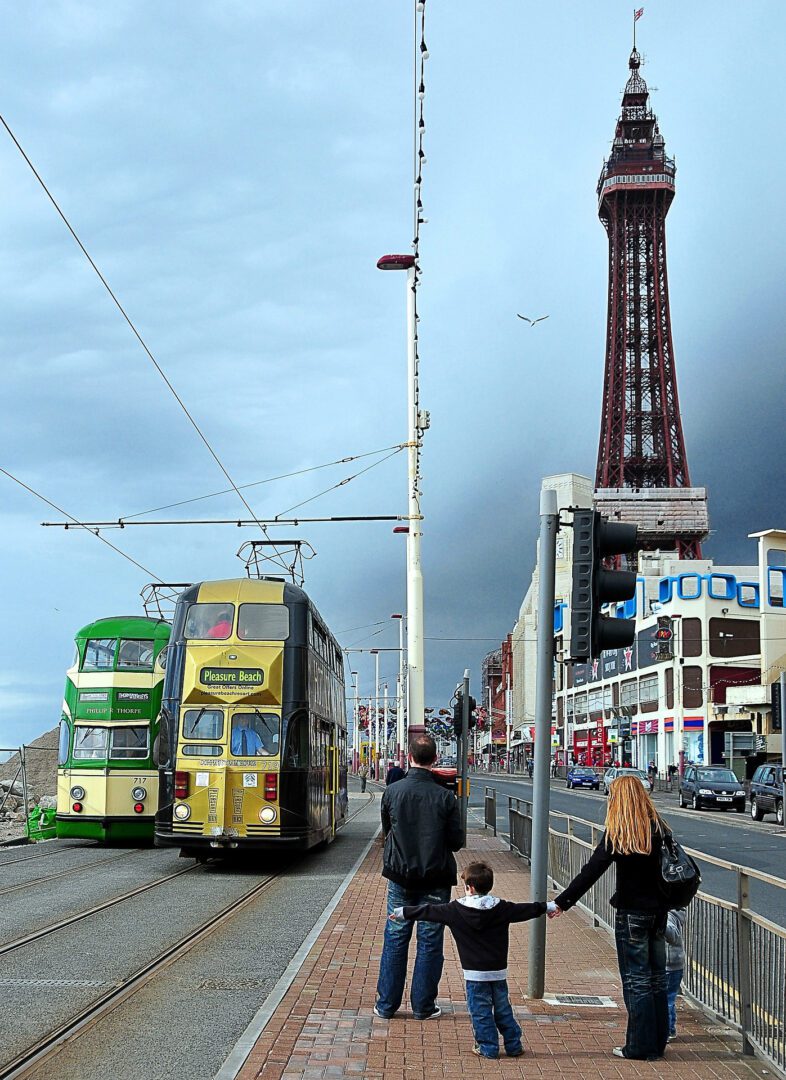“While I was writing this particular scenario I got to thinking this particular post could easily be considered a prophesy more than a scenario. Hopefully, it’s only my weird imagination at work, and such a tragedy never happens to any of our coastal sea-side towns” (Shahd 2025).
A Tragedy Waiting To Happen
By 2050, the once-vibrant seaside town of Blackpool, located on England’s west coast, found itself teetering on the brink of a catastrophic disaster. The relentless rise in sea levels, fueled by global climate change and over-exploitation of natural resources, had long been an impending threat not just to Blackpool – other coastal towns could face a similar tragedy.
Despite early warnings from scientists, environmental activists, and concerned local residents about the dangers posed by unchecked coastal development and pollution, authorities remained wedded to their tried-and-tested concrete sea defenses. Town leaders, often swayed by developers eager for investment in this still-popular tourist destination, prioritized short-term economic gains over long-term sustainability.
Building permits for new developments along Blackpool’s coast continued to be issued, disregarding mounting evidence that such constructions would exacerbate flood risks and contribute to coastal erosion. By 2050, Blackpool’s infrastructure was pushed beyond its limits by the constant battle with sea encroachment..
Only Time Will Tell The Tale

The first major incident occurred in 2046 when a severe storm surge, with waves more akin to a tsunami, surpassing anything previously recorded, breached the town’s outdated drainage and concrete sea defence bottle necking at Watson Road underpass. Backed up sea water spilled over road -side barriers. inundating the funfair, and much of the low-lying areas causing significant property damage along the coast.
Despite recent weather warnings being dismissed as hype by stall owners, the funfair remained open that day. Debris caused by the surge along with rides and stalls were washed further inland, while the iconic blue and red Dipper roller coaster was undercut and partially destroyed. Many people falling from the now twisted metal tracks while some souls were still holding on to the safety rail of their car as it plummeted down into the roaring waves.
Tragically, several people lost their lives, that late afternoon, while trying to escape the rising waters. In the aftermath, local councils repeatedly warned that the situation would only worsen without immediate government assistance.
Too Little Too Late

As the years progressed leading up to 2050, public opinion in Blackpool began to shift dramatically. Residents grew increasingly vocal about their concerns for safety and survival, yet politicians seemed more inclined to appease investors than protect citizens’ lives and livelihoods.
Efforts at further coastal defence, such as constructing higher sea walls, were either delayed or inadequately funded.
By 2050, Blackpool’s plight had become a grim cautionary tale of the consequences of inaction on climate change. sections of the once – thriving town lay submerged beneath waves, with extensive loss of life and property. Families were displaced, businesses destroyed, cherished landmarks lost , and the once-bustling streets lost to the relentless march of the ocean.
The failure of authorities to heed early warnings resulted in a loss of trust between residents and their elected representatives. Environmental activism reached unprecedented heights as Blackpool’s tragedy became a rallying cry for change across the United Kingdom.
The incident underscored the urgent need for comprehensive adaptation measures, greater investment in renewable energy technologies, and international cooperation to tackle climate change more effectively.
In post Image by Tommy Staziker from Pixabay
Feature Image by Muhammad Tayyab Tayyab from Pixabay
In post Image by Barrie Taylor from Pixabay
Note:
“This scenario reflects a possible tragic reality faced by coastal communities in our country and worldwide due to the impacts of rising sea levels, emphasizing the importance of protective policy-making, public awareness, and global collaboration to help prevent such disasters from occurring.” (Shahd. 2025)
Image of Blackpool tower is not a present day photograph.